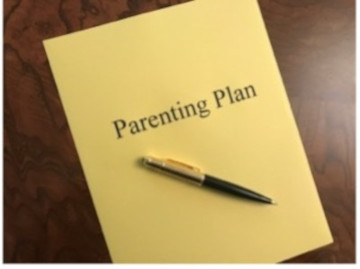Hispano Collaborative Professionals™, also known as HCP, is a new Collaborative practice group of Collaboratively trained professionals serving Florida’s Hispanic communities in divorce. HCP is proud to be the Nation’s First Hispanic Collaborative Practice Group. What’s unique about HCP is that all of their professionals are fully bilingual (i.e. speak, read, and write) in the Spanish language and have a passion to serve the legal needs of the Hispanic communities. The group comprises highly selective group of independent lawyers, neutral financials, facilitators and professional affiliates committed to the practice of the Collaborative Divorce process.

Currently, the highest Hispanic population in Florida is in the City of Miami. Approximately 70.2% of the 442,241 total inhabitants of the City of Miami are Hispanics. The Hispanic population would benefit greatly from legal services by bilingual professionals trained and qualified in the Collaborative Divorce process. Going through divorce is challenging enough, but when English is not your first language the legal jargon, cultural nuances and process can be even more intimidating putting you at a disadvantage. Having a lawyer who understands the influences of language and culture of the participants involved in the process can help create a space of understanding and no judgment, to ensure that you are as comfortable as possible during the process.
Mission of the Hispano Collaborative Professionals™ (HCP)

HCP’s mission is to spread the power of the Collaborative Divorce process and other dispute resolution methods to the Hispanic community by creating awareness of a better and healthier way to resolve conflict. The overall Collaborative process is a powerful force that builds trust.

And, as teams make connections, individuals naturally trust each other more which allows for a stronger collaboration. This leads to more creativity, efficient processes, increased success, and effective communication.
What is a Collaborative Divorce?
A Collaborative Divorce is a voluntary dispute resolution process in which you and your spouse are able to create a durable agreement without resorting to litigation. You get help of two lawyers, a neutral facilitator, a neutral financial professional, and, if needed, Collaboratively-trained professional affiliates (known as “Allied Professionals”). Each of you is represented by your independent lawyer and an interdisciplinary team you choose. If you and your spouse agree, you use the same neutral facilitator and equally share the facilitator’s expense.

A neutral facilitator is especially useful when young children are involved. You commit to work together towards a mutually beneficial outcome. You also agree, if the Collaborative process terminates, your lawyers will not represent you in litigation. In other words, you would have to hire new independent attorneys for adversarial court proceedings. However, according to the International Academy of Collaborative Professionals (IACP), 86% of Collaborative matters reach full resolution of all issues and 2% of the clients reconcile.
How does the Collaborative Divorce process work?

Once you each hire a lawyer, they will help you choose a shared neutral facilitator, neutral financial professional, and, if needed or helpful, professional experts or specialists. Depending on your needs, you may need two neutral facilitators. In some Collaborative Divorces, parents use a child specialist to help address specific needs of the child or to bring the child’s voice into the Collaborative process.

If you have a simple divorce with no children and no assets, a neutral facilitator and neutral financial professional affiliate would be unnecessary. On the other hand, if you have young children and substantial assets, it would be wise to hire a neutral financial or a neutral professional affiliate to provide you with different options and recommendations based on their education and knowledge. Unlike a litigated case, the lawyers don’t work against each other; instead, they work with each other while advocating for you. In Collaborative Divorce, there are no depositions, formal discovery requests, or adversarial court hearings, because everything is done outside the courtroom. You and your spouse commit to share all your financial information with each other.
If you’ve filed a petition for divorce, no worries. Your lawyer can request from the one that’s wearing the black robe (the judge) to put your case on hold. You’ll then have the opportunity to resolve your differences using the Collaborative Divorce process.

The Collaborative Divorce process is voluntary, confidential, and transparent. Your interdisciplinary team will work with you to identify and resolve your issues in a dignified, respectful, and mature way. The goal is to create the best possible outcome for your family.
Once all participants sign a Collaborative Participation Agreement, you will participate in team meetings, generally ranging from 3 – 5 meetings depending on the complexity of your case. Each meeting typically lasts two (2) hours. Before each meeting, you’ll receive an agenda outlining the specific topics to be discussed. After each meeting, a new agenda of items and homework for the next team meeting will be prepared. All the meetings are client-focused. There will seldom be surprises.
What are the main functions of each Collaborative professional?
Collaborative Lawyer

While advocating for you, your Collaborative lawyer uses “interest-based negotiation”. What does this mean? You’ll discover together what your interests are by defining your needs, concerns, fears, and desires. During the Collaborative process, your team and you develop creative options to satisfy those interests. In Collaborative Divorce, all participants meet together in a conscious attempt to avoid litigation and focus on problem-solving and solutions. During negotiations, your Collaborative lawyer works as your advisor, informs you of your rights, and explains the law bearing on issues through which you, your spouse, and your team are working.
After all team meetings are completed, your lawyers will file and submit the legal documents to obtain a final judgment of dissolution of your marriage.
Neutral Facilitator

A neutral facilitator keeps the process in balance and helps address emotional and family needs that may arise. Think of the neutral facilitator as a manager who oversees the whole process, ranging from scheduling and managing all meetings, drafting agendas, guiding you through the agreed-upon agenda, and developing communicating skills during challenging moments to keep communications civil.

If you have minor children, the neutral facilitator will help you create a parenting plan in your children’s best interests.
If needed, the facilitator, who usually has a strong mental health background, provides clinical insight to the team. The facilitator recognizes divorce is an emotional process and not just a legal process, so will keep meetings on track so that your time is well spent and the team hears everyone’s voice.
Financial Neutral

You share one financial neutral who will help you gather, organize and understand your financial information. Unless you and your spouse agree otherwise, you’ll equally share the expense for the financial neutral.
The financial neutral’s function is to analyze your information and to facilitate educating, envisioning settlement options, and creating a plan for settlement. For example, the financial neutral may help develop options for you to save for your children’s college education, save for retirement, buy a new home, or simply have enough cash flow to meet each of your needs. Ordinarily, the financial neutral will help each spouse prepare financial affidavits.
The Three Cs: Benefits to the Collaborative Divorce Process in Spanish
Communication

One of the biggest benefits to the Collaborative Divorce process in Spanish is your lawyer will communicate with you clearly and directly in your native language. For people whose first language isn’t English, the American legal system can be quite frightening. Legal terms can be difficult to understand, translate, or interpret correctly. As a non-native English speaker, it can be difficult clearly to communicate your fears, concerns, and questions in English. You may feel embarrassed because you’re not understanding something being explained in English. These communication barriers are common, and you’re not expected to understand everything because you don’t have experience in the legal field.
Benefits of Collaborative Divorce include:
- Choosing a lawyer who speaks your native language, so you can openly and directly communicate with each other about your goals, concerns, and ideal strategies.
- Being free to hire the Spanish-speaking Collaborative professional(s) with whom you’re most comfortable.
- Saving money by not having to hire an interpreter.
- Saving time during team meetings by not breaking the momentum with frequent stops. For example, the process is slower and longer when a participant isn’t fluent in Spanish so continual interruptions will occur due to the necessity to translate the discussions in English.
- Benefiting from a group of Hispanic, Spanish-speaking professionals who understand cultural insights from your perspective and know what it’s like to “stand in your shoes.”
Culture

Divorce is never easy, even in the best circumstances. It’s even harder when having to deal with cultural differences. However, feeling a bit anxious and nervous during a major life-changing event is normal. Comfort is an important factor for good and effective communication. By nature, we are all more comfortable with people who can speak our language, grew up as we did, and can understand our culture.

Therefore, culture, words, phrases, expressions, body language, etiquette, values, and traditions during the Collaborative Divorce process matter. The better your lawyer understands these areas, the smoother the process will be. Sharing similarities in language and cultural background or upbringing will also allow for a deeper connection, thereby, making communication easier.
The last thing you’d want is to have a breakdown in the process that would hurt your experience. Having a lawyer you trust will give you confidence and security to know everything will work out.
Cost

Hiring a Spanish-speaking lawyer is more cost-effective than not hiring one, because there will be no need for a translator or interpreter. The effectiveness of time management improves when everyone speaks and understands the same language. That saves you money. The Collaborative team understands your needs from the outset because there are no language roadblocks.
For example, just imagine yourself hiring a non-Spanish speaking lawyer, the interpreter misinterprets or mistranslates and miscommunicates your question, and your lawyer is given wrong information. By the time the misunderstanding is uncovered, you’ve lost time and paid unnecessary legal fees. You then hire a Spanish-speaking attorney who needs time to learn about your case and to review your prior lawyer’s work. Now, you’ve double paid legal fees for the same work and lost time. Making smart decisions from the start will save you money in the long run.
How to Choose a Spanish-speaking Collaborative Lawyer?

Choose a lawyer you can trust and are comfortable with and who is confident, is smart, and resolves conflict peacefully. A lawyer who can offer reassurance, who is an optimist, yet is a realist. Take time to interview several attorneys from the Hispano Collaborative Professionals (HCP) before making your final decision.
All the members of the Hispano Collaborative Professionals practice group meet the highest standards and requirements set by the HCP, the Florida Academy of Collaborative Professionals (FACP), and the International Academy of Collaborative Professionals (IACP). FACP is Florida’s statewide organization of lawyers, financial professionals, and mental health professionals whose mission is to guide families to peaceful divorce using the Collaborative Divorce process. IACP is an international community of legal, mental health professionals, and financial professionals working together to create client-centered processes for resolving conflict.
Why choose the Collaborative Divorce process?
If you want to keep peace during a difficult and stressful time, the Collaborative Divorce process is a smart choice. Not only will you avoid the adversarial court process, but you’ll also save time and money, and, most importantly, you’ll avoid conflict.
Collaborative Divorce typically provides you a faster resolution outside the court system than litigating in it. Because the Collaborative Divorce process is confidential, except in rare circumstances, you’ll keep your private information out of the public record. You’ll have self-determination and control of the process. With the help of your Collaborative team, you’ll be empowered to make good, informed decisions.

Even though you and your spouse couldn’t resolve your irreconcilable marital differences, you’ll always share one common interest: your children. Aren’t your children a good enough reason to keep the peace? And, if you don’t have children, resolving your differences peacefully as you start a new chapter in life is healthy.
Turn the page in your book, while preserving your future relationship with your soon-to-be ex—and get to a different yet better place in life.
So, what’s next?

If you’re ready to move forward with your divorce in a respectful, dignified, and private way, with a team of Spanish-speaking Collaborative professionals, reach out for more information at: https://www.hispanocollaborativepros.com or email: info@hispanocollaborativepros.com.






